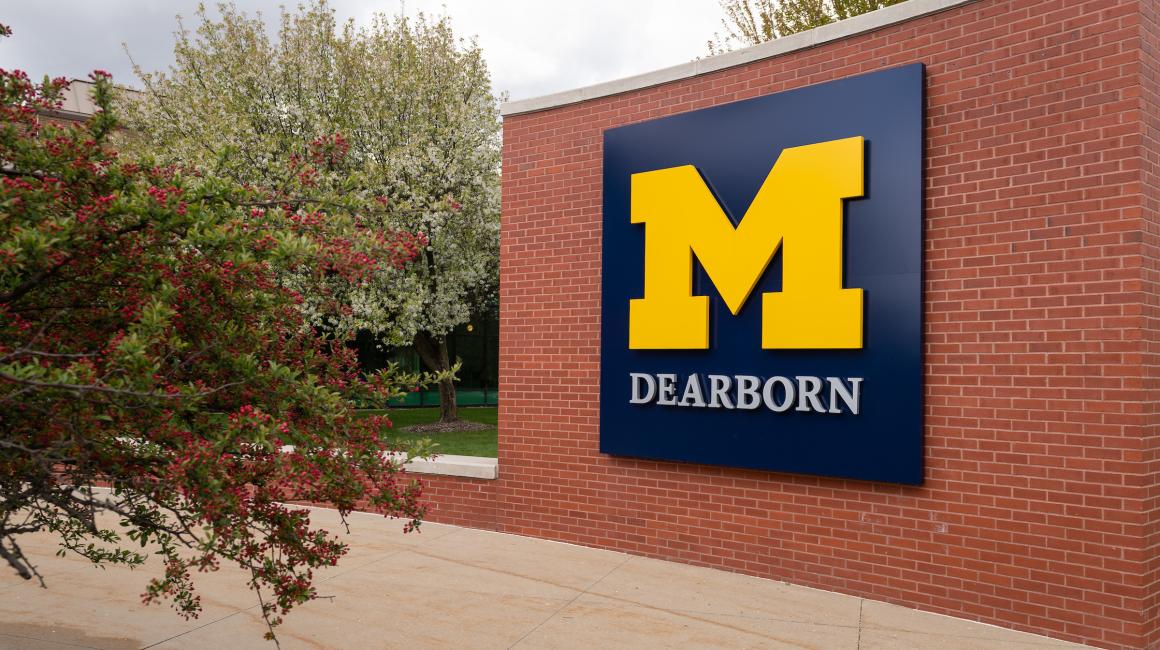
The University of Michigan-Dearborn affirmed its commitment to student success, more equitable wages and sustainability efforts in its $170.2 million general fund operating budget for fiscal year 2024.
The Board of Regents approved the spending plan June 15.
Prior to the board’s vote, UM-Dearborn Chancellor Domenico Grasso highlighted several important investments that will move the campus forward.
Among them was the purchase of energy from sustainable sources as part of UM-Dearborn’s long-term plan to reduce its carbon footprint.
Grasso said the university’s budget explored creative and meaningful ways to reward faculty and staff, while also honoring a commitment made by all U-M campuses to raise minimum wage to $15 an hour.
In addition, a more than 6% increase in need-based financial aid included in the spending plan will help improve access to higher education for southeast Michiganders, assisting a State of Michigan goal to have 60% of residents obtain a college degree or certification by 2030. More than $28 million is designated for financial aid in UM-Dearborn’s FY2024 budget.
The budget includes several university programs that help high-achieving, underrepresented students access a college education, including the Go Blue Guarantee. The free tuition program for low-income students expanded to include UM-Dearborn and UM-Flint in 2021.
Approximately $6 million in aid has been awarded at UM-Dearborn through the Go Blue Guarantee. Nearly 900 students had their tuition and fees fully covered during the 2022-23 academic year.
Faced with declining numbers of graduating high school students in the state and uncertainty around inflation and state funding, UM-Dearborn officials said they are cautiously approaching the next fiscal year.
Vice Chancellor for Business Affairs Bryan Dadey said the university’s budget was created based on the university experiencing flat enrollment growth and a 4% state increase in state appropriations.
The budget includes a 6% increase in financial aid, 1% across-the-board merit increase for employees effective Sept. 1, funding commitments to bargained labor and minimum-wage agreements.
Dadey said the budget also includes a 4.4% tuition increase for full-time, in-state undergraduate and graduate students, equating to $312 and $396 increases, respectively, per semester. This increase falls below the latest Higher Education Price Index and the U.S. Bureau of Labor and Statistics’ annual inflation rate of 5.2% and 4.9%, respectively. Non-resident tuition will increase by 6%.
“The campus budget is one of the most complex and difficult tasks to develop and administer. Consistent with my commitment to shared governance and transparent and inclusive decision-making processes, I sought input from the Faculty and Staff Senates and senior leaders. There was much thought, analysis, discussion and debate leading up to today’s announcement,” Grasso said. “UM-Dearborn has fared well considering the pandemic, state K-12 demographics, national anti-college narratives and other factors not in our control. The budget is balanced, aligns with our mission and is the best plan forward for our university. What we can control, we are doing well.”
Dadey acknowledged that some items in the budget, such as the 1% wage adjustment, may come as a surprise when there is typically a 3% base merit pool increase. He pointed out that the university absorbed a 10-14% health insurance premium surge over the last year. He also said the university wanted to keep the tuition increase for in-state students under the inflation rate, so there was a need to explore creative ways to reward employees for their dedication.
Among these, Grasso said UM-Dearborn will reduce campus operations during holidays this year to allow faculty and staff to enjoy additional paid time off. The campus will close the week of Nov. 20 for the Thanksgiving holiday and on Dec. 21 and 22, in advance of the university’s season days. There will also be consideration of an additional 2% salary increase based on financial performance indicators. Any additional increase would be evaluated in October and effective Jan. 1.
“Adding additional paid time off for all faculty and staff is a small, but meaningful, expression of our appreciation for our faculty and staff’s commitment to our students and the great work completed over this past academic year,” Grasso said.
The additional campus shutdown days will also aid in reducing UM-Dearborn’s carbon footprint. Other areas where campus has reduced carbon emissions include extensive lighting retrofits, demand control ventilation and occupancy sensors. Assessments currently underway include solar panels and a Smart Labs initiative in campus research spaces.
Article by Sarah Tuxbury.


